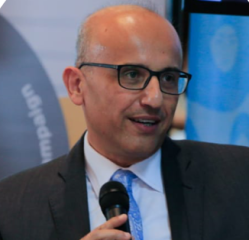“To err is to be human,” wrote Alexander Pope. “Success is not final, failure is not fatal: It is the courage to continue that counts,” Churchill proclaimed. An African proverb announces that “Only those who do nothing never make mistakes.”
We know that in many cases the meaning of these adages is true—not just in life but for scaling education innovations for sustainable impact. Yet, for organizational and cultural reasons, global development contexts disincentivize talking openly about our scaling mistakes while the work is still underway. Similar to other professions (like medicine, governance, and education leadership), we in the scaling field shy away from articulating to others the mistakes we make as individuals or teams.
We focus on “challenges” instead, because externally caused difficulties are safer to discuss. We employ the passive voice—”mistakes were made”—to separate ourselves from what went wrong. Our monitoring, evaluation, and learning systems (MEL) often promote the M and the E but demote the L. And when we share “lessons learned,” we typically detach them from the mistakes that gave rise to them in the first place.
Many contexts discourage the candid sharing of mistakes
We’re reluctant to admit our mistakes because we do not want to be perceived as incompetent—or because we don’t want to lose our job, funding, or legitimacy. We are disinclined to admit mistakes because society has imposed on us an imposter syndrome, nudges us toward fixed mindsets, and weighs many people down with stereotype threats.
That’s too bad, because this buries effective mechanisms for improvement: processes like trial and error, experimentation, and honest course correcting. When those proven learning techniques are relegated to the shadows, scaling suffers. As Adam Grant wrote, “The harder you make it to voice problems, the harder it becomes to solve them.”
Michael Fullan defines scaling as “learning by doing.” John List writes about the regular need to ask yourself if it is time to pivot or scale down your innovation, or if you’re not the right person to be scaling it. The literature on scaling repeatedly tells us these things and yet, when the consequences feel hazardous, it becomes irrational to do so.
We should do more to establish professional spaces where we can share and learn from our mistakes without losing face. On a personal level, sharing the scaling mistakes we make liberates us from the discomfiting straitjacket of perfectionism. From a learning standpoint, it allows us to analyze what went wrong and learn something new. On an organizational level, it underscores the fact that innovation is always about erecting progress out of the shards of our collective mistakes. And from a scaling standpoint, it makes visible what is sometimes hidden: Scaling is an imperfect science often best accomplished by trial and error.
We know that none of this is as simple as it sounds. Who can share their mistakes to whom in what context is linked to power, hierarchies, and the extent to which listeners are supportive. And accountability is a necessary but entangled part of any quality control system (yet could often be improved by way of critical interrogation and reasonable adjustment).
Morbidity and mortality conferences
The medical profession uses “morbidity and mortality conferences” as a protected space where peers meet to analyze cases that went wrong. By opening mistakes up for supportive scrutiny, rather than blame and punishment, medical professionals can identify patterns of error, learn from others’ mistakes, and modify their practices and judgment to reduce the likelihood of the mistakes occurring elsewhere or again.
Scaling could use such a space. In our ROSIE project, we recently hosted a virtual workshop to try out just such a space. We first presented cultural and psychological reasons why talking about our mistakes is disincentivized, and what supports and protections must be in place to create a trusting space in scaling work. We did this not only to create psychological safety for the workshop itself, but also to model such behavior so scaling teams can create similar trust in their own contexts.
In small groups we discussed the mistakes we’ve made in our scaling and research work and mistakes we’ve seen others make. What came out of the workshop was a stronger learning community, several collaboratively generated ideas for how to leverage mistakes for individual and collective learning, and a list of actual lessons learned.
Some scaling lessons learned from mistakes made
- During the initial scaling project proposal stage, conduct a rigorous analysis of the broader system in which you will scale.
- Don’t neglect introductory and foundational scaling conversations with team members and stakeholders. For example, collectively define “scalability” and “sustainability.”
- Identify your uninterrogated assumptions about practices, beliefs, and cultures of others and be sure to see things from your participants’ perspectives—not just through your own eyes. Many times, it’s the false assumptions about what lies outside your model that will complicate scaling.
- Overwork has consequences: When everyone is working to their limit, it’s hard to notice mistakes, learn from them, or be patient when others make them.
- You need personal backchannels with high-level decisionmakers alongside the formal communication pipelines.
- It’s better to go slow when concerned about electoral politics or government turnover to allow for a safer or more stable process of planning with government.
- Always have a Plan B.
- Talking about mistakes with donors depends on the donor. Some donors have unrealistic expectations; others are hungry for the conversation.
- If leaders (and funders) model this process by sharing their own mistakes, it becomes easier for the rest of us to follow suit.
- Put an agenda item on recurring team meetings that asks, “What mistakes have we noticed recently and how can we address and learn from them?”
If the broader education scaling community—including funders, universities, and development organizations—can establish productive, trusting spaces for sharing and learning from our scaling mistakes, then we can incentivize authentic and collaborative peer learning, improve the trial-and-error dimension of scaling, and offer compelling contributions to the knowledge base. Such a culture shift should encourage the kind of mindset shift that turns missteps into progress.
Note: This project is supported by the Global Partnership for Education Knowledge and Innovation Exchange (KIX), a joint partnership between the Global Partnership for Education (GPE) and the International Development Research Centre (IDRC). The views expressed herein do not necessarily represent those of GPE, IDRC or its Board of Governors.
Brookings is committed to quality, independence, and impact in all of its work. Activities supported by its donors reflect this commitment and the analysis and recommendations are solely determined by the scholar.
The Brookings Institution is committed to quality, independence, and impact.
We are supported by a diverse array of funders. In line with our values and policies, each Brookings publication represents the sole views of its author(s).









Commentary
The power of mistakes: 10 lessons to leverage learning in scaling
February 13, 2023